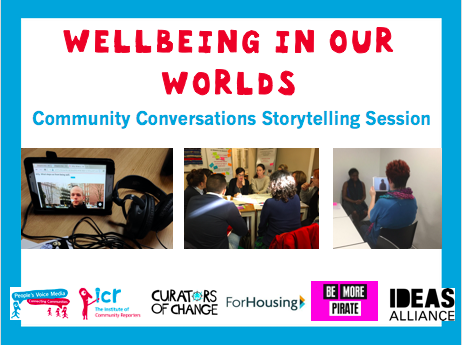WORKING WITH COMMUNITY REPORTING

Late last year we started working with Barnsley Museums to explore how Community Reporting and lived experience storytelling can support their evaluation activities, and contribute to their on-going learning and development. We wrapped-up the initial part of this work – and here is what we learned!
The group felt that the strengths of using Community Reporting as an evaluation tool are:
- it gave a platform to participants to voice their perspectives
- it gives detailed insights into people’s experiences
- it can feel less pressured/formal than other approaches to evaluation
- it can be tailored to the needs of a project
When reflecting on the weaknesses, the group felt that Community Reporting faced challenges such as:
- people finding the time to dedicate to it properly and resourcing from the organisation
- some people may be missed if they don’t feel comfortable with being filmed/recorded
However, despite some challenges in implementing the methodology, the opportunities it provides far outweighed them. For example, it provides a more engaging way of presenting learnings and information. It also allows organisations to better respond to community needs by listening to them directly. More so, it gathers meaningful evidence of impact that other methods do not. And finally, Community Reporting provides a process for understanding qualitative evaluation which helps tackle bias.
So, with all those opportunities and positives to using Community Reporting as a tool for learning, evaluation and impact evidencing, we wish our partners at Barnsley Musuems all the best as they embed it into their work!





